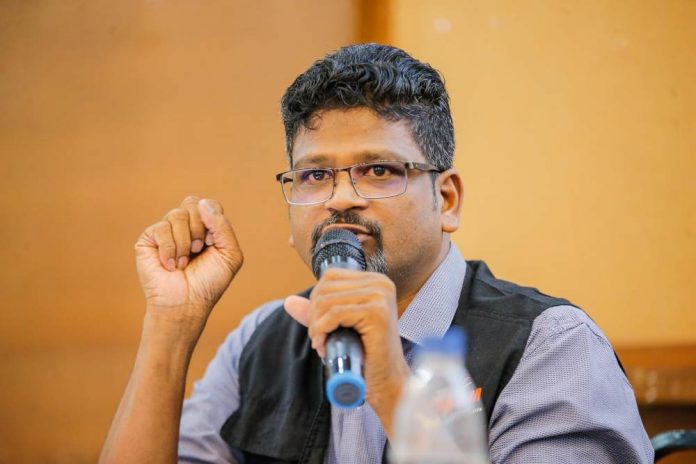
KUALA LUMPUR, Dec 9 — Efforts to address human rights abuses have either stagnated or declined in 2020 following the takeover of the Perikatan Nasional (PN) administration, Suara Rakyat Malaysia (Suaram) asserted today.
The local human rights advocacy group, when releasing their Human Rights Report 2020 Overview, noted how PN taking over the administration unelected not only dented Malaysia’s democracy, but its subsequent support and defence of what many regard as draconian laws did not inspire confidence in their efforts to correct human right’s abuses.
However, Suaram noted that PN’s predecessor, Pakatan Harapan, despite its reputation of being a reformist government, has also been unimpressive as it failed to come through on their own human right’s promises.
“Its (PH) successor, the PN government does not inspire confidence either when the Home Minister has repeatedly defended the use of the Sedition Act 1948 and Communications and Multimedia Act 1998 (CMA) to control expression on the internet.
“He even reiterated the view that Sedition Act 1948 is still largely relevant and made no commitments to abolish it.
“The current government also chose to reverse the trend set by the previous government of deciding not to table the Suhakam (Human Rights Commission of Malaysia) Annual Report to the parliament for debate.
“The government’s lackadaisical attitude towards human rights issues have us believed that they hold human rights issues with scant regard,” Suaram executive director Sevan Doraisamy said during a virtual press conference held this morning.
Detailing further, Suaram noted several positives from the PN government, namely their support for the United Nation call for a moratorium on the death penalty, and not lifting the moratorium here and them acknowledging the issue of overcrowded prisons.
The group also lauded the government for the heightened awareness on several environmental and human rights issues such as the dispute over the degazettement of the Kuala Langat Forest Reserve, and the plight of migrant workers here during the pandemic.
However, there were more negatives which include the government’s repeated abuse of the CMA on social media postings deemed seditious, or touched on the issues of the three R’s of race, religion, and Royalty, or disseminating fake and inaccurate information regarding the Covid-19 situation and mitigating efforts.
They also admonished the government’s decision to introduce what they claimed as the largely ineffective and toothless Independent Police Conduct Commission (IPCC) bill, adding it was akin to a watered down version of the already unsatisfactory Independent Police Complaints and Misconduct Commission (IPCMC) bill proposed by the PH government.
Suaram also noted how abuses of power by the police, their alleged extra judicial punishments against those detained during the movement control order, along with issues concerning the consistent deaths occurring within authorities’ custody, initiating chain remand orders, and how police shooting still occurs without accountability and oversight.
Charts presented during the virtual presentation showed that a total of 2,437 individuals were detained without trial in 2019 under several laws including the Security Offences (Special Measures) Act 2012, Prevention of Crime Act 1959 (Poca), Prevention of Terrorism Act 2015 (Pota), and the Dangerous Drugs Act 1952.
The numbers showed that from January to September this year, a total of 2,335 people have already been detained without trial.
They also noted how 335 deaths in custody have already occurred this year within prisons, police lockups and Immigration Department detention centres cumulatively.
The group also noted a decline in freedom to assemble claiming authorities were stricter in taking action, but not without a tendency to suppress the freedom of assembly under the pretext of preventing the spread of the Covid-19 pandemic.
Incidents of freedom of assembly being curtailed cited by Suaram include the probe into almost 20 people for either organising or participating in the “Save Malaysia” protest outside the Sogo shopping mall in the city in March, intended to show dissent towards PN taking over as government.
Also noted was how authorities decided to arrest and charge give picketers under the National Union of Workers in Hospital Support and Allied Services in June this year, and against those who organised a rally outside the Kuala Lumpur Courthouse to show their support for Datuk Seri Najib Razak on the day his first corruption trial verdict was delivered.
On steps the government should take to improve the situation, Sevan noted there needs to be reforms undertaken within the police force, the prison system, and to abolish any legal provisions that allow for detention without trial.
“The government must also see the views of civil society groups as those of important stakeholders.
“What they have to remember is that these groups are not against the government, but rather they are against the undemocratic policies and practices of the government,” he said.
Sevan added that the PN government could do better with more engagement sessions with such groups to be informed of the views from the people, concerning pressing matters such as the IPCC Bill, and environmental issues.
“But the PN government, there is too much concentration given on them retaining their power, and things like getting their Budget passed.
“There is no engagement with them; it would be good if anyone can pull them together (with these groups) to have an engagement session,” he added.


